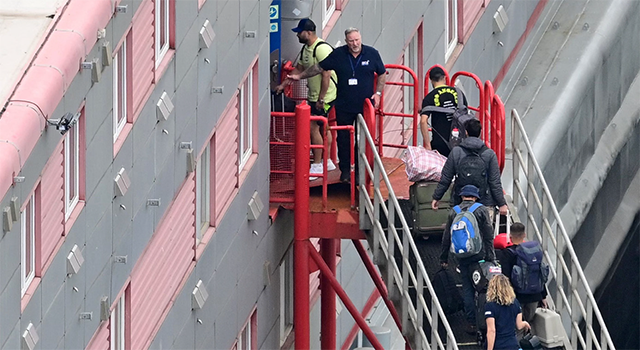You are here
Dead Sea hotel evacuated over risks of contaminated water
By Hana Namrouqa - Oct 08,2018 - Last updated at Oct 08,2018
AMMAN — Authorities on Monday evacuated and closed down a four-star hotel at the Dead Sea, after detecting in its water system the Legionella bacteria, which causes a pneumonia-type illness.
The Ministry of Health detected the bacteria in the hotel’s water system while carrying out regular testing of water quality, the ministry’s Spokesperson Hatem Azrui said, noting that “no cases of illness due to the presence of Legionella in the water system have been reported at the hotel, but the ministry opted to evict hotel occupants as a standard precautionary measure and closed down the facility”.
The ministry did not provide official figures on the number of evicted hotel occupants, but reports indicate that over 160 people were requested to leave the hotel premises.
“The hotel was shut down and asked to rectify the situation,” Azrui told The Jordan Times.
Asked whether the ministry had imposed penalties against the hotel, he stated that “closing down the facility and the possible damage to its reputation is quite a penalty”.
The hotel in question was contacted by The Jordan Times for comment, but no employees were available to answer.
Meanwhile, the Jordan Water Company (Miyahuna) said that it does not supply the closed down hotel with water, which receives its water from “sources other than Miyahuna”.
In a statement e-mailed to The Jordan Times on Monday, Miyahuna stated “we do not provide the Dead Sea’s hotel with water.”
“[Miyahuna] pumps water to its subscribers after a series of technical standards and regulations which adhere with Jordanian water standards,” the company, which supplies Amman, Zarqa, Madaba and partially Balqa with water and wastewater services, said in the statement.
Legionella is a type of bacterium found naturally in freshwater environments, like lakes and streams. It can become a health concern when it grows and spreads in human-made building water systems like showerheads and sink faucets, cooling towers, hot tubs that are not drained after each use, decorative fountains and water features, hot water tanks and heaters and large plumbing systems, according to the Centres for Disease Control and Prevention (CDC) website.
After Legionella grows and multiplies in a building water system, water containing Legionella then has to spread in droplets small enough for people to breathe in. People can get Legionnaires’ disease or Pontiac fever when they breathe in small droplets of water in the air that contain the bacteria. Less commonly, people can get sick by aspiration of drinking water containing Legionella. This happens when water accidently goes into the lungs while drinking, according to the CDC.
Legionella can cause Legionnaires’ disease or Pontiac fever, collectively known as legionellosis.
Scientists named the bacterium after an outbreak in Philadelphia in 1976. During that outbreak, many people who went to an American Legion convention got sick with pneumonia (lung infection).
Health departments reported about 6,100 cases of Legionnaires’ disease in the United States in 2016. However, because Legionnaires’ disease is likely underdiagnosed, this number may underestimate the true incidence.
In general, people do not spread Legionnaires’ disease to other people. However, this may be possible under rare circumstances.3
Legionella occurs naturally in fresh water environments, like lakes and streams. It can become a health concern when it grows and spreads in human-made building water systems.
Keeping Legionella out of water systems in buildings is key to preventing infection.
Related Articles
Jordan has received a shipment of BCG (tuberculosis) vaccines, which were unavailable for months, a Health Ministry official said on Thursday.
The Ministry of Health on Wednesday said the unavailability of BCG (tuberculosis) vaccines at its health centres is due to a delay from the supplier who was supposed to deliver the requested shipment last month.
LONDON — Migrants on Thursday began returning to an accommodation barge docked on the southwest English coast after it was evacuated two mon
















